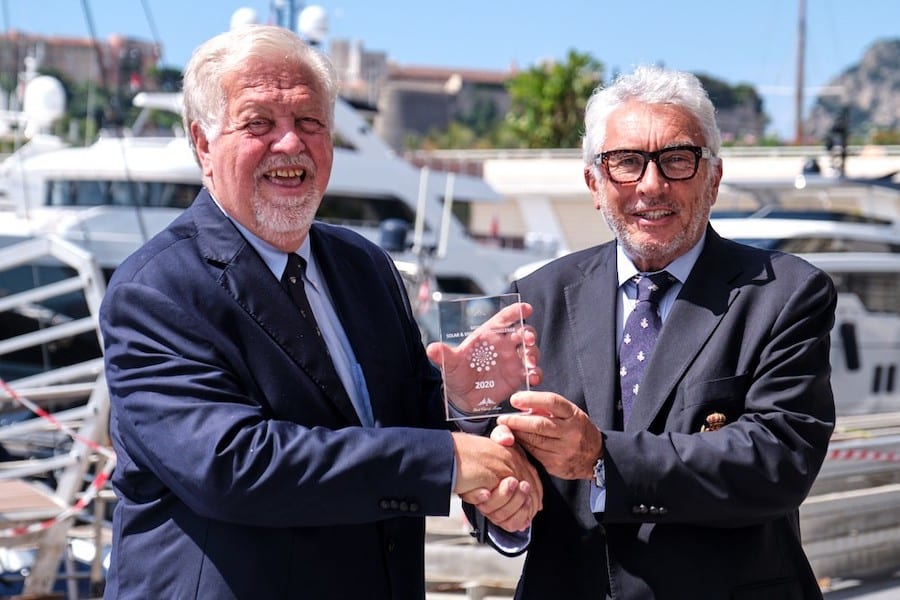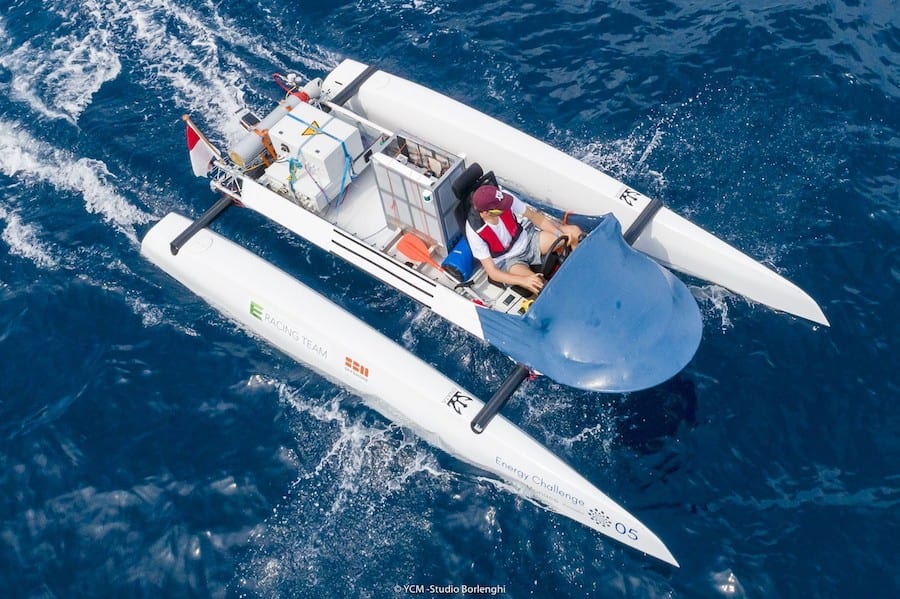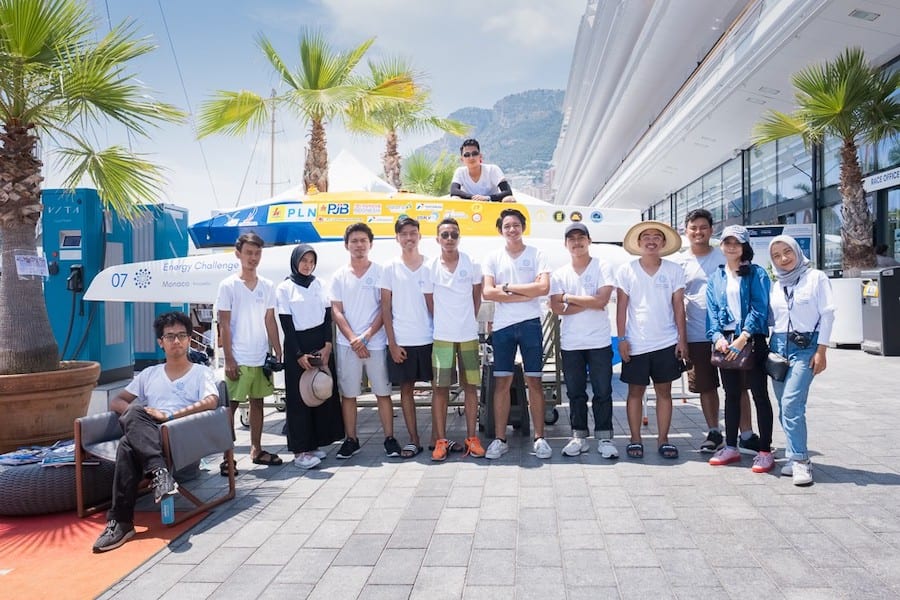This year’s winners of the Monaco Solar and Energy Boat Challenge have been crowned, with some truly innovative young teams stepping up to the plate.
Despite its exceptional virtual format this year, the Monaco Solar and Energy Boat Challenge has proven synonymous with innovation and progress in yachting. For seven years, the event has promoted alternative motorised boat propulsion initiatives, and this year was no different.
As teams were not allowed to travel to the Principality due to the current health crisis, the Yacht Club of Monaco offered contestants a new format based on sharing information on open source with auditions online for the 18 teams in competition to pitch their projects.
At the online prize-giving ceremony on Wednesday 8th July, five prizes were awarded – each including a financial grant for the winner.
“As part of our ‘Monaco: Capital of Yachting’ project, the Monaco Solar and Energy Boat Challenge aims to support a new generation of engineers whose ideas and inventions are going to re-write the industry’s rule book, making it more respectful of the environment,” says YCM General Secretary Bernard d’Alessandri. “We wanted to recognise all the hard work put in by the teams during the last year, while fully respecting health guidelines and avoiding large crowds. That’s why we decided to go the virtual route, for the first time since its launch in 2014.”
Organised by the Yacht Club of Monaco alongside the Prince Albert II of Monaco Foundation and the International Powerboating Federation, the event is unique in the fact it reflects the commitment of researchers, academics, future engineers, inventors, and yachting and energy professionals.
Despite world-wide health restrictions disrupting their work, 18 teams representing 12 nations stepped up to the plate to present their project to a Technical Jury comprising engineer Marco Casiraghi, the man behind the project, Erwann Lebel, naval architect at Espen Oeino International, and Jérémie Lagarrigue from Energy Observer.
Divided into three classes – Solar, Energy and Open Sea Class – most participants put themselves forward for all three categories of prizes: Innovation, Eco Conception and the Spirit Prize. Dossiers had to be handed in by 10th June 2020 and were subject to an in-depth analysis, with each team then having an opportunity to pitch their project in oral interviews with an international jury via Zoom.
Three prizes and two ‘Coup de Cœur’ (favourite) prizes were awarded by the jury who were impressed with the quality of the work presented.
The Innovation Prize went to Técnico Solar Boat (Portugal) in the Energy Class category for most advanced improvements and innovation relevance in meeting the sector’s requirements. It’s the fourth time the Portuguese have participated – three times in the Solar Class and this year in the Energy Class. This time, engineers at the Instituto Superior Técnico decided to aim for two categories with two different prototypes. In the Energy Class, they stood out for their concept of a boat powered by hydrogen using a 5kW fuel cell, with current innovations motivating them to produce their own fuel cell and hydrogen using electrolysis of water via an electrolyser powered by solar panels in the future.
Inspired by the Energy Observer vessel, these students hope to have a system in place to filter seawater for the electrolysis process and use the hydrogen produced to power their bespoke fuel cell.
The Eco Conception Prize went to SBM Offshore E-Racing Team (Monaco) for its efficiency of materials and processes used, and its contribution to science and the team’s commitment to sharing good practices.
Sustainability was at the core of the project from SBM Offshore E-Racing Team, led by Francesco Prazzo, in terms of the lifecycle of the cockpit, use of different materials as well as the propulsion system which comprises standard components that can all be reused.
In their quest to find new renewable energy solutions, they designed a prototype floating system that can produce hydrogen from sea water using solar and wind power, ideas that aroused the jury’s curiosity, to clinch the Eco Conception Prize ahead of the eight other contestants.
The Spirit Prize was won by TU Delft Boat Team (Netherlands), who have been regulars to this meeting since the first edition in 2014.
According to the jury, the young engineers this year brilliantly retraced and illustrated the technical research they’d achieved over the past few months despite the lockdown and not being able to progress the project as fast as they wanted. “Their team spirit reflects the spirit of the event, making them a worthy winner of this prize,” said the YCM.
Unable to decide between them, the international jury wanted to pay tribute to two teams in particular with the Coup de Cœur prize.
The first was awarded to Hydros Team UI (Indonesia), who was competing for all three prizes with a boat powered by a battery and solar panels that contained several special features. Hynova (France), was awarded the second Coup de Cœur prize for their prototype of a 40-foot boat powered by an electric engine, itself powered by hydrogen from a fuel cell supplied by Toyota.
But the initiative doesn’t stop with the prize giving. Exchanges will continue throughout the year in the form of webinars so contestants can stay in contact with professionals, share knowledge and reinforce links between candidates and major players in the industry.
The presentations and discussions are available on the event’s website: https://mcsebc.org/webinar/.
Top photo: Marco Casiraghi and Bernard d’Alessandri. Photos and text provided by Yacht Club of Monaco
Monaco rewards green innovators of tomorrow


